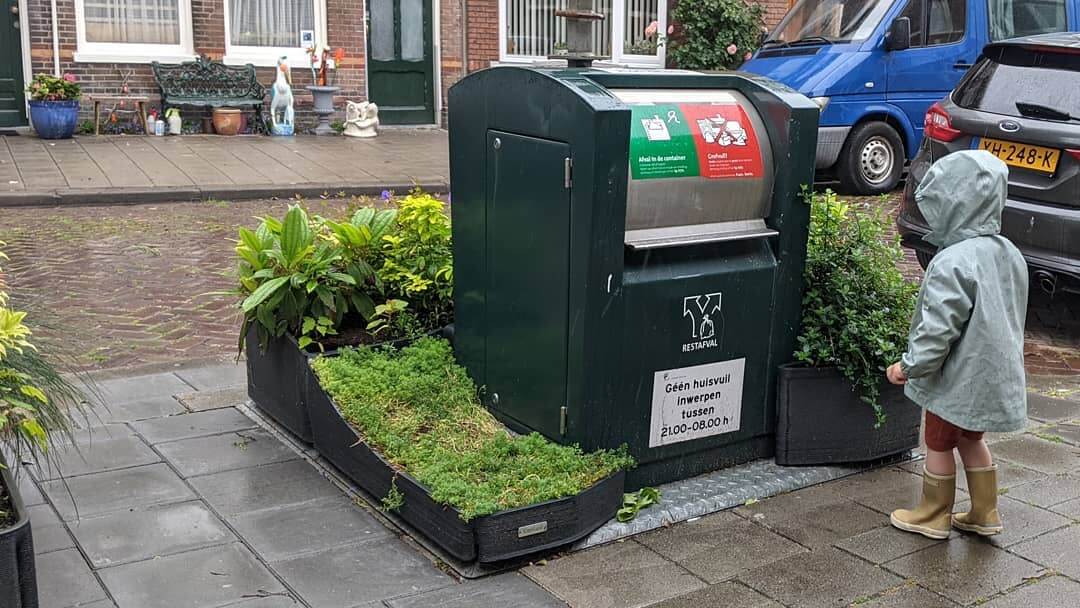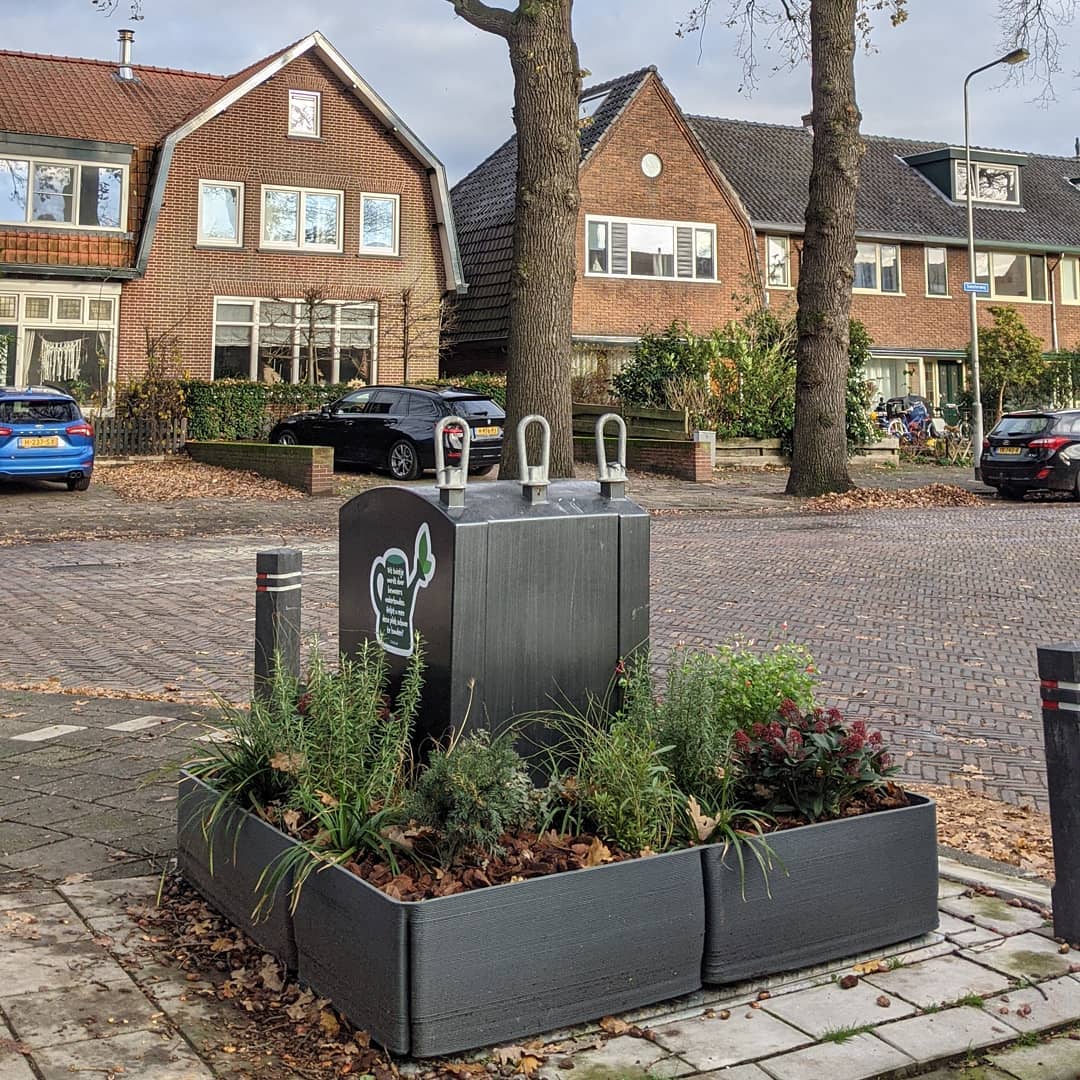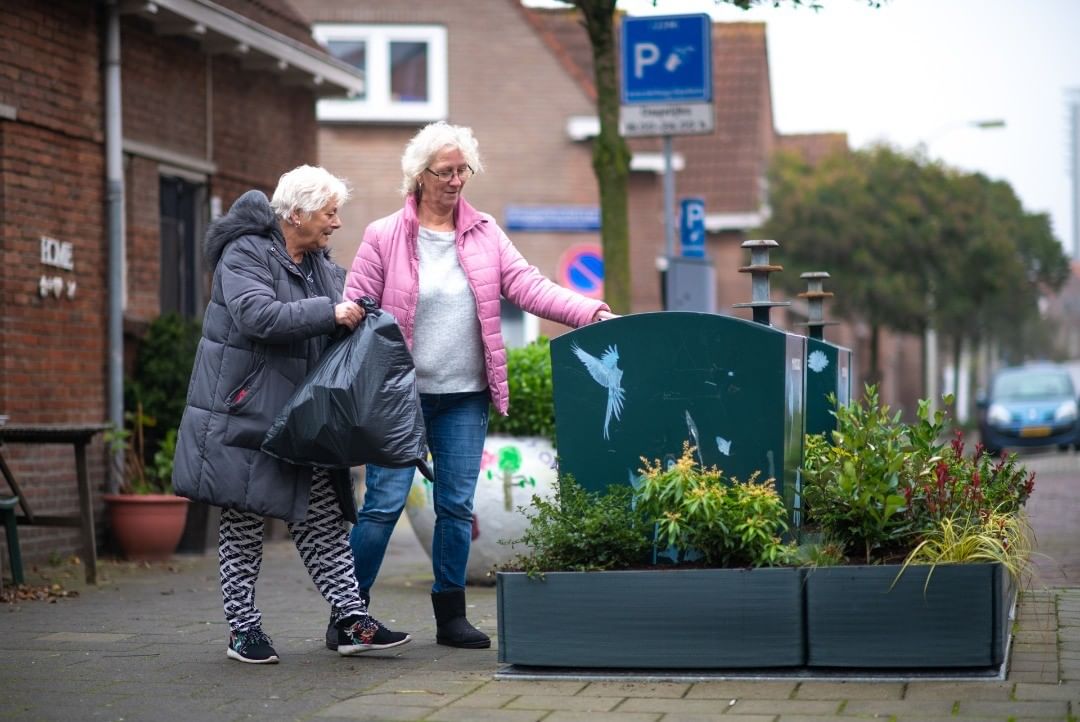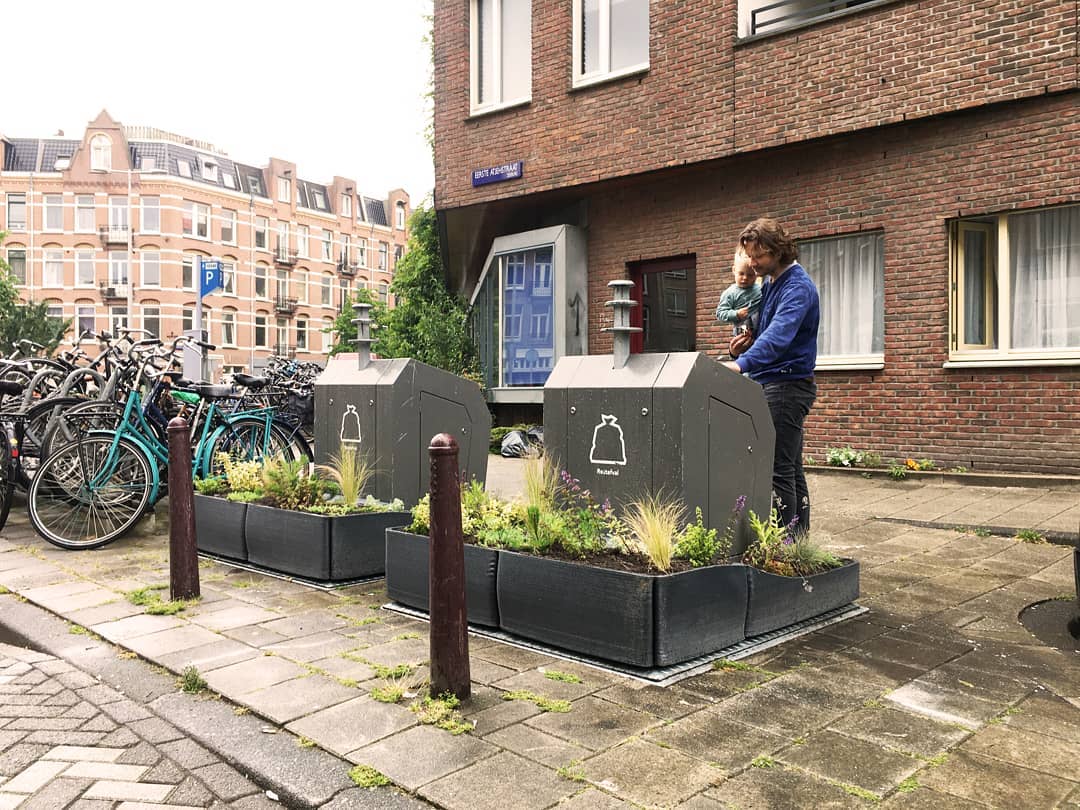
- Sustainable Planet -
- 3mins -
- 1,001 views
Amsterdam is planting mini-gardens around trash cans with hopes to cut littering
After an initial experiment with artificial grass at trial locations reduced litter by half, these miniature gardens installed around underground waste bins in Amsterdam are 3D printed with plastic waste, so a place for trash gets upgraded using trash. How cool is that?
Amsterdam plants mini-gardens around trash cans to cut littering
Miniature gardens are springing up around street bins in Amsterdam in an experiment to see whether they will dissuade people from thoughtlessly littering near them. The trial is to be conducted at 17 sites over the next three months, after an earlier experiment using artificial grass at the base of 150 bins was a partial success, reducing the dumping of rubbish in the immediate vicinity by around half; however, the plastic turf soon became unsightly.
A council official told The Guardian it was hoped that the presence of foliage and flowers would act as a “kind of moral appeal” to potential litterers and give a lift to the appearance of Amsterdam’s streets. The main concern for council officials conducting the trail is whether the gardens prove to be an obstacle to teams collecting the rubbish. — The Guardian | Quest.nl
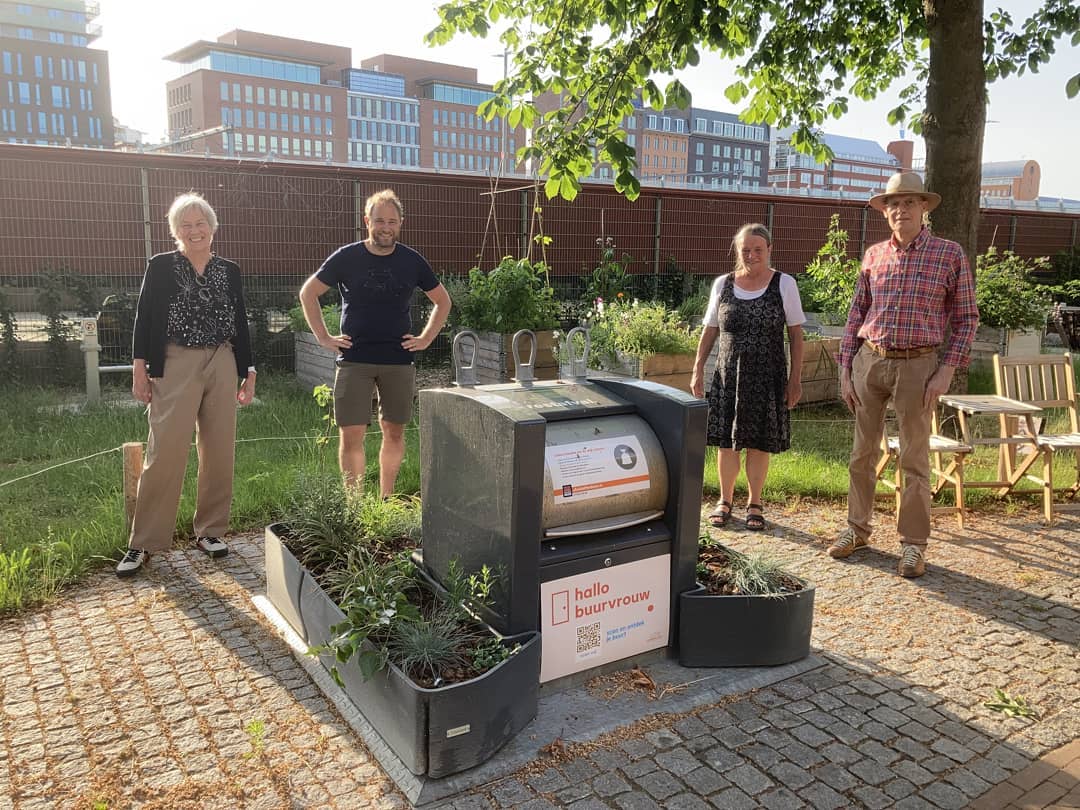
The problem of litter around public bins has come to the fore during the lockdown as people working from home have ordered more takeaways, increasing the amount of bulky waste. Residents were also found to be fearful of touching the bins due to the coronavirus, and there was a higher level of absenteeism among rubbish collectors, meaning street bins were often left full. Source: Instagram/containertuintjes
